Discover the Truth About Common Water Heater Myths
As a homeowner, you may encounter various water heater myths that can be confusing. To help you distinguish fact from fiction, we have crafted an informative guide that addresses common water heater myths.

Myth #1: They last forever
Fact: While water heaters are built to be durable, they do not last indefinitely. The average lifespan of a water heater is around 10-15 years, depending on factors such as maintenance, usage, and water quality. Regular maintenance and timely replacement can ensure your water heater functions optimally and efficiently throughout its lifespan.


Myth #2: All water heaters are the same
Fact: Water heaters come in various types and models, each with its unique features and benefits. Tank water heaters store hot water in insulated reservoirs, while tankless water heaters heat water on demand without the need for a storage tank. Solar, heat pump, condensing, and hybrid water heaters are also available, each offering distinct advantages in terms of energy efficiency and performance. Choosing the right water heater type depends on your household's hot water needs, energy efficiency preferences, and available space.

Myth #3: A bigger tank means more hot water
Fact: While it may seem intuitive to assume that a larger tank would provide more hot water, the size of the tank does not directly determine the amount of hot water available. The hot water capacity of a tank is determined by its gallon rating, but the rate at which it can supply hot water is influenced by the heating element or burner's power. An oversized tank may lead to unnecessary energy consumption, and an undersized tank can result in inadequate hot water supply. Choosing the right tank size based on your household's hot water demands and the tank's heating power is crucial for optimal performance.
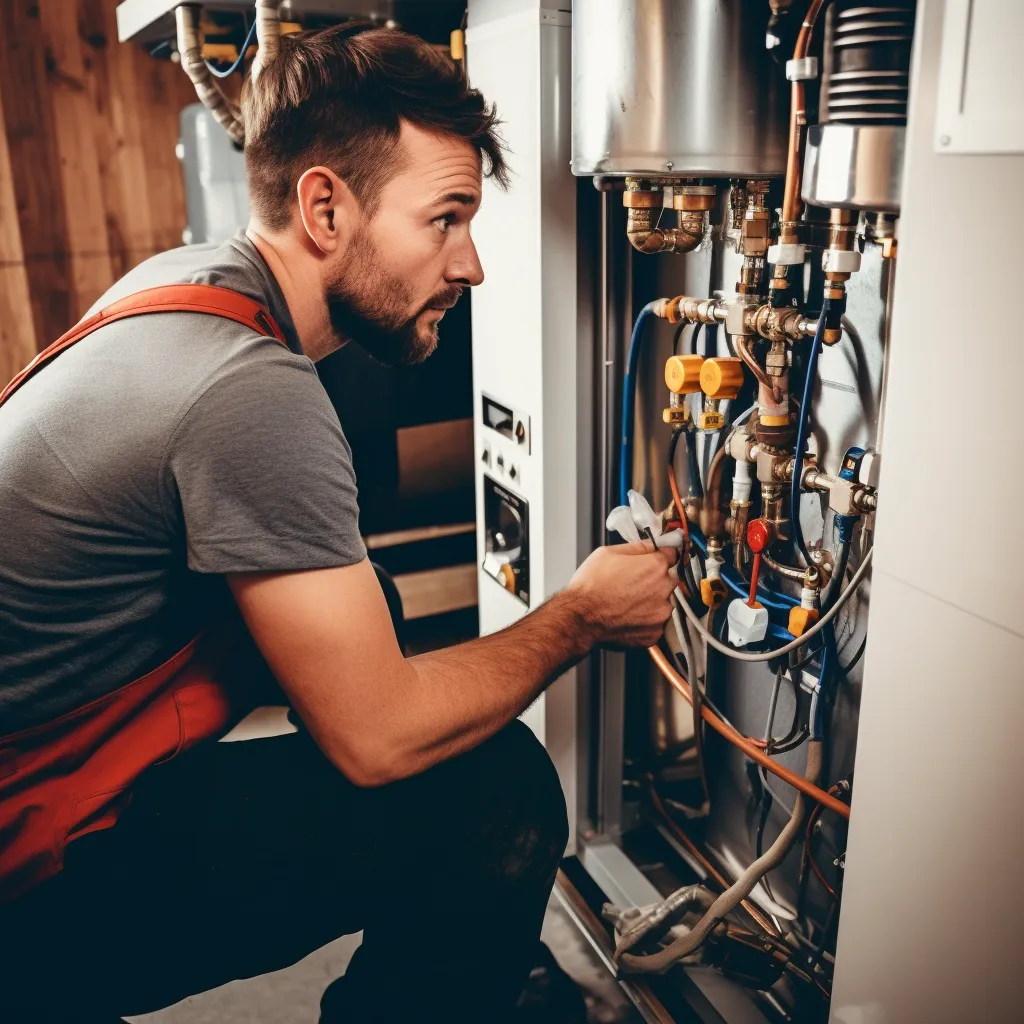
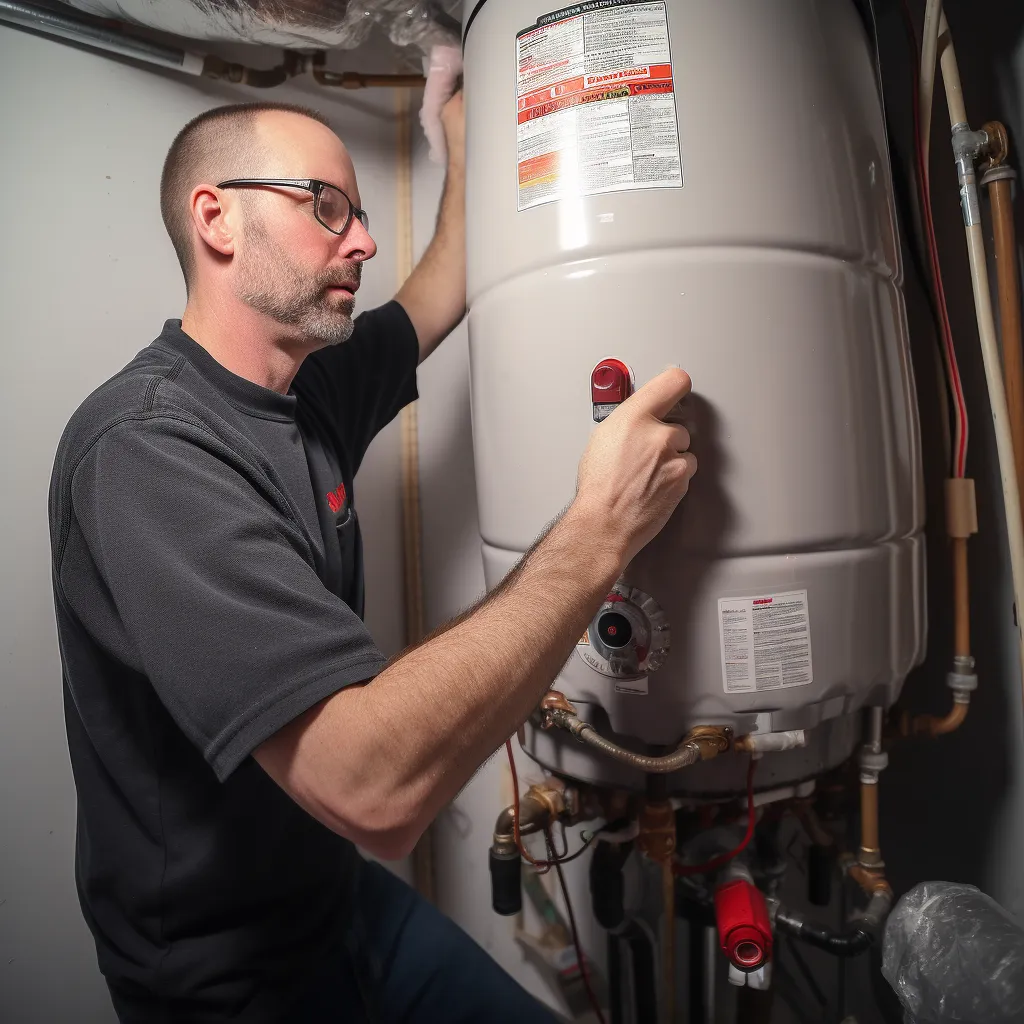
Myth #4: You can repair or replace a hot water heater yourself
Fact: While some minor maintenance tasks, such as flushing the tank or replacing the anode rod, can be done by homeowners, major repairs or water heater replacements should be left to licensed plumbers. Water heaters involve complex systems, and attempting repairs or installations without proper knowledge and experience can lead to safety hazards, improper functioning, and even damage to the unit and property. Hiring a licensed plumber ensures that the job is done correctly and safely, providing peace of mind and reliable hot water for your home.
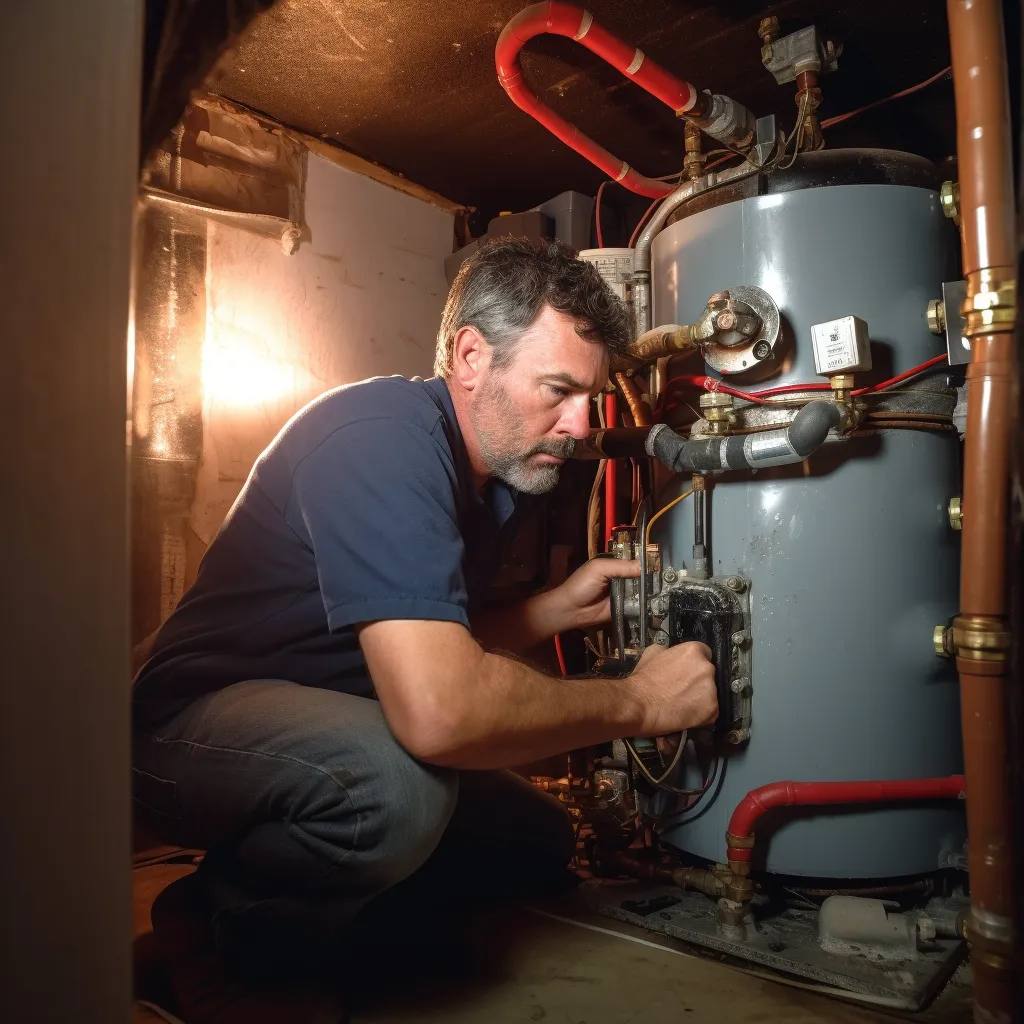
Myth #5: Your water heater doesn't need to be flushed
Fact: Flushing your water heater is a crucial maintenance task that should not be overlooked. Over time, sediment and mineral deposits can accumulate at the bottom of the tank, reducing its efficiency and potentially causing damage. Flushing the tank periodically helps remove these deposits and ensures that the water heater operates efficiently. Neglecting to flush your water heater can lead to reduced hot water output, increased energy consumption, and premature wear and tear on the unit. Regular flushing can extend the lifespan of your water heater and keep it running smoothly.

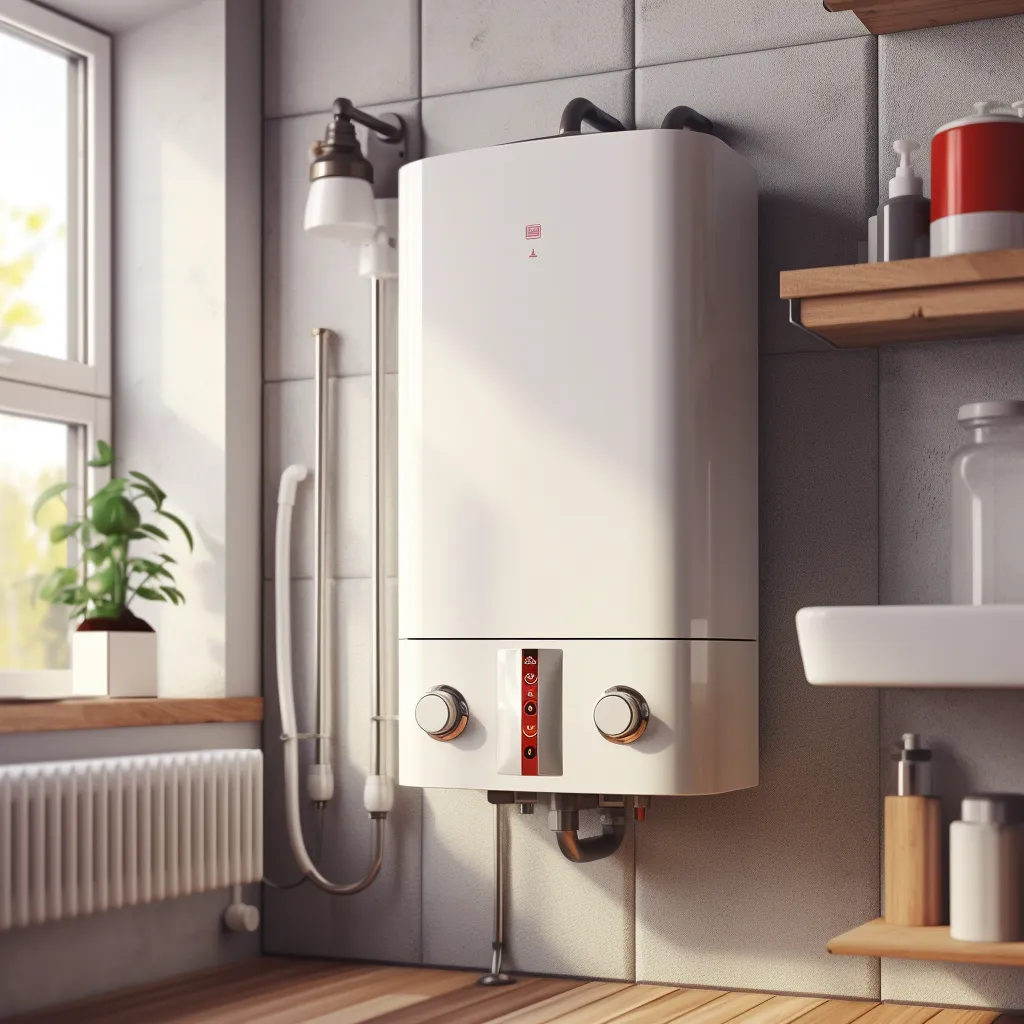
Myth #6: Keeping an outdated water heater saves money
Fact: While it may seem cost-effective to hold onto an outdated water heater, older units are typically less energy-efficient than newer models. Over time, they can consume more energy to heat water, leading to higher utility bills. Investing in a modern, energy-efficient water heater can result in significant long-term savings on energy costs. Additionally, outdated water heaters are more prone to breakdowns and may require frequent repairs, leading to additional expenses. Upgrading to a newer, more efficient water heater can provide better performance, lower energy consumption, and reduce the risk of unexpected repair costs.
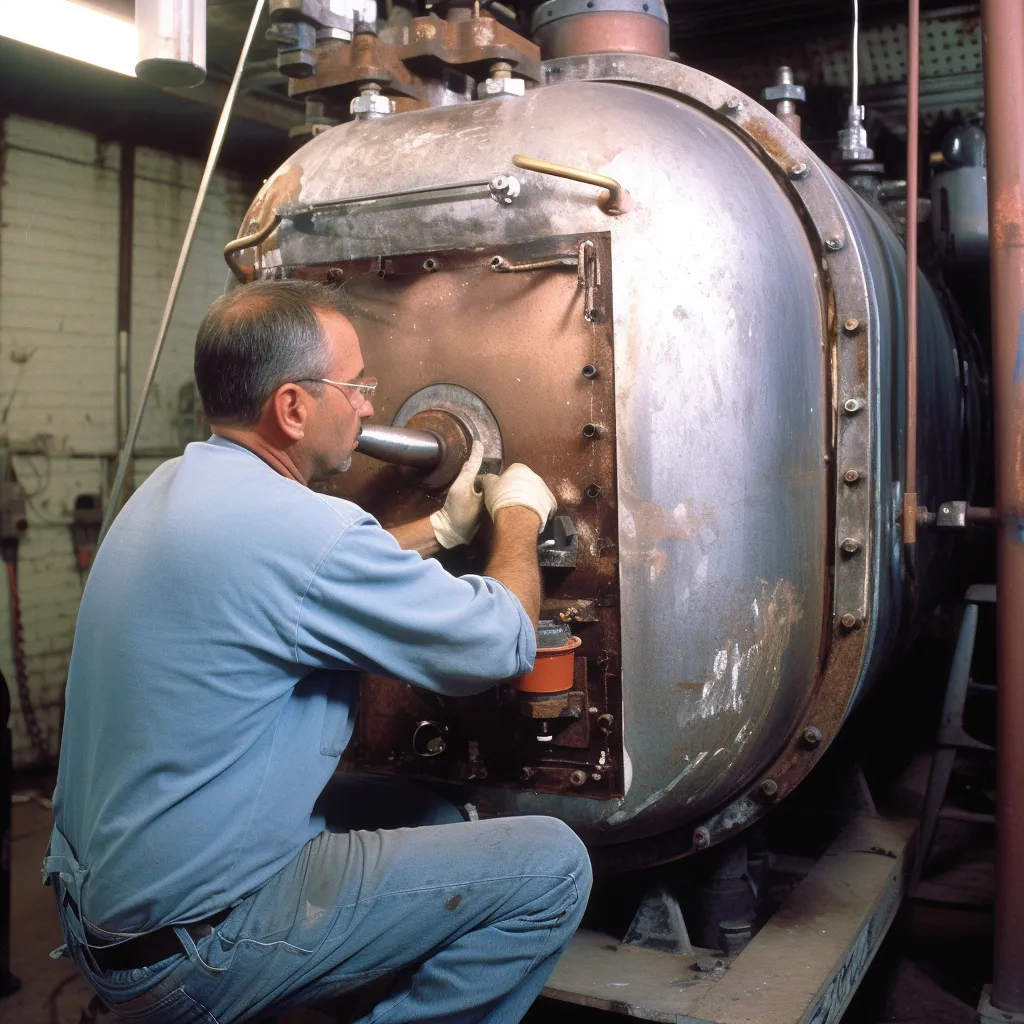
Myth #7: A bigger water tank is more energy efficient
Fact: The size of the water tank does not determine its energy efficiency. In fact, larger tanks may consume more energy to maintain the stored water at a set temperature, leading to increased energy usage. The energy efficiency of a water heater depends on factors such as its insulation, heating mechanism, and recovery rate (the speed at which it can reheat the water).
Choosing the right size water heater based on your household's hot water needs is essential for optimal energy efficiency. An appropriately sized water heater will provide sufficient hot water without excessive energy consumption. Tankless and energy-efficient models, regardless of tank size, can be more energy-efficient options for homes with lower hot water demands. Consulting a licensed plumber can help you select the most energy-efficient water heater suitable for your home.
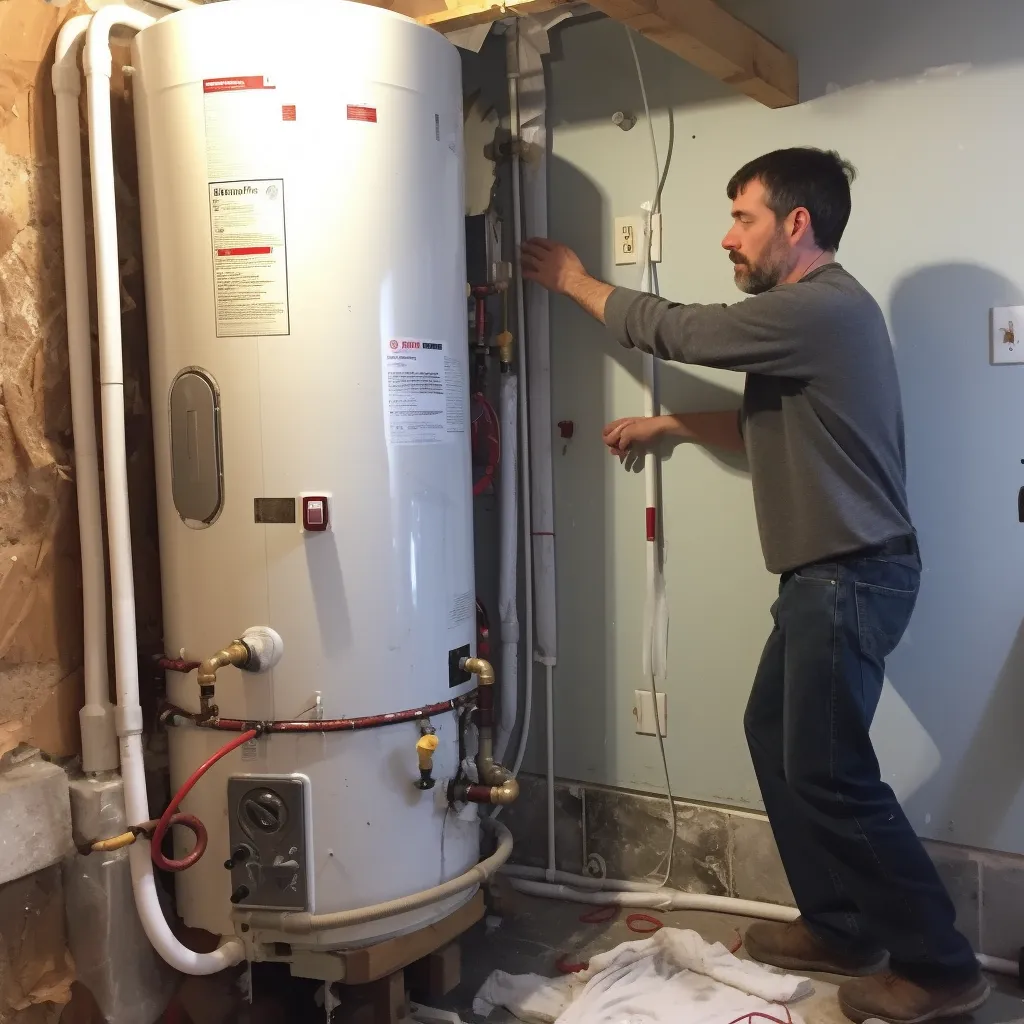
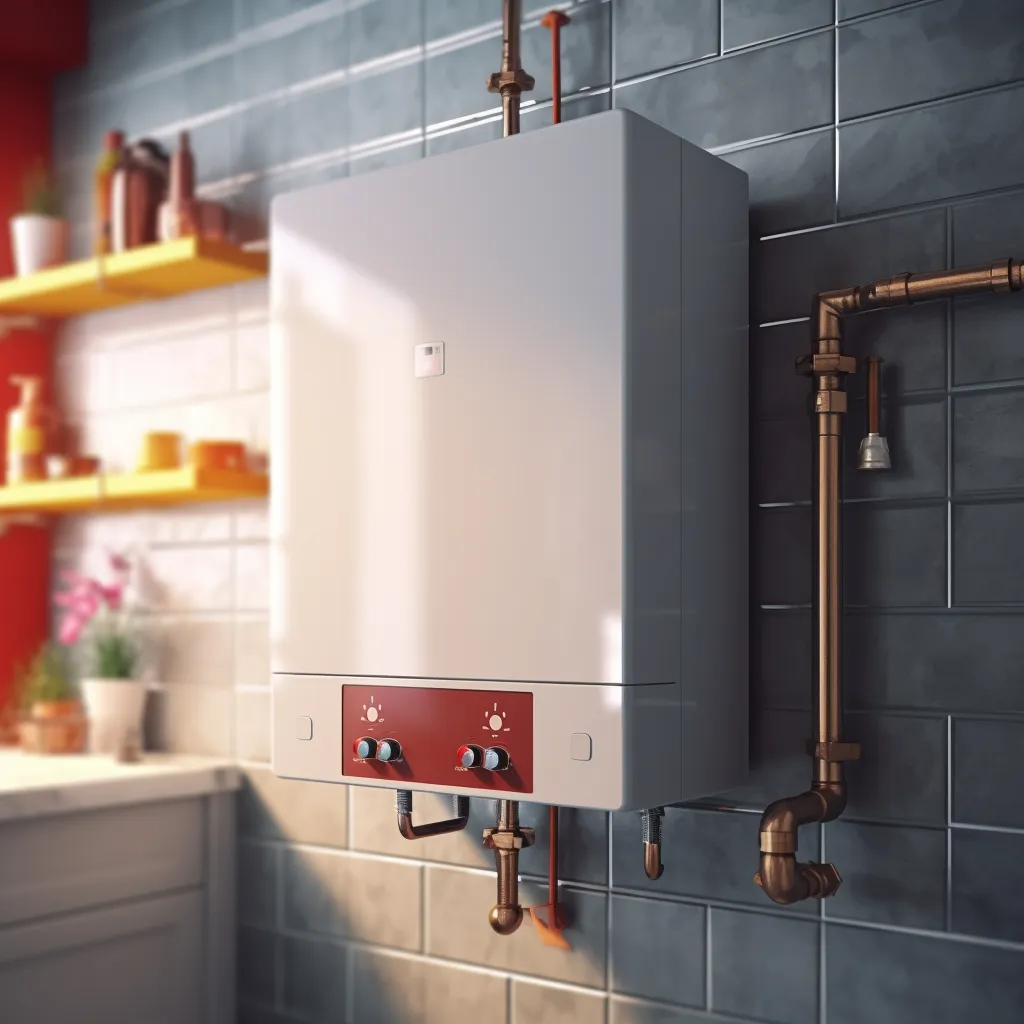
Myth # 8: Cranking up the water temperature is a good idea
Fact: While it may be tempting to set the water heater to a higher temperature for hotter showers, excessively high water temperatures pose safety risks and waste energy. Water temperatures above 120 degrees Fahrenheit (49 degrees Celsius) can scald and cause serious burns. It is recommended to set the water heater temperature between 120-140 degrees Fahrenheit (49-60 degrees Celsius) to balance safety and comfort.
Maintaining the appropriate temperature not only prevents scalding accidents but also saves energy and reduces utility bills. Higher temperatures can lead to standby heat loss, where the water in the tank loses heat to the surrounding environment, causing unnecessary energy consumption. By setting the water heater to an optimal temperature, you can enjoy hot water safely and efficiently.
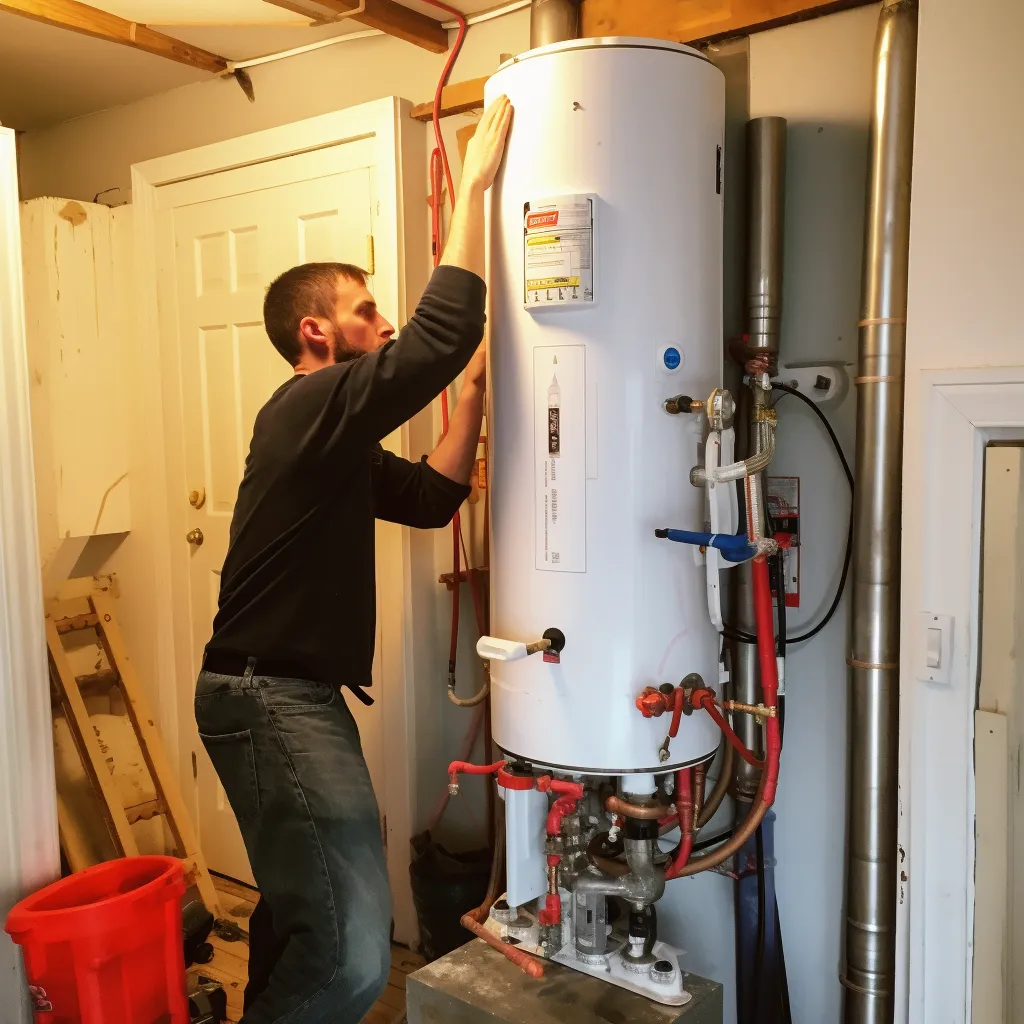
Myth #9: Setting your water heater to the highest temperature
is the way to go
Fact: Setting your water heater to the highest temperature is not advisable. While it may seem like it would provide the hottest water possible, it can lead to safety risks and waste energy.
As mentioned before, water temperatures above 120 degrees Fahrenheit (49 degrees Celsius) can cause scalding and serious burns. Additionally, extremely high temperatures can accelerate sediment buildup and increase the risk of corrosion inside the water heater, shortening its lifespan and potentially leading to costly repairs.
Optimally, set your water heater temperature between 120-140 degrees Fahrenheit (49-60 degrees Celsius) to balance safety and comfort. This temperature range ensures hot water for daily tasks while minimizing safety hazards and energy waste. If you need hotter water for specific purposes, consider installing anti-scald devices or point-of-use water heaters at the fixtures that require higher temperatures.

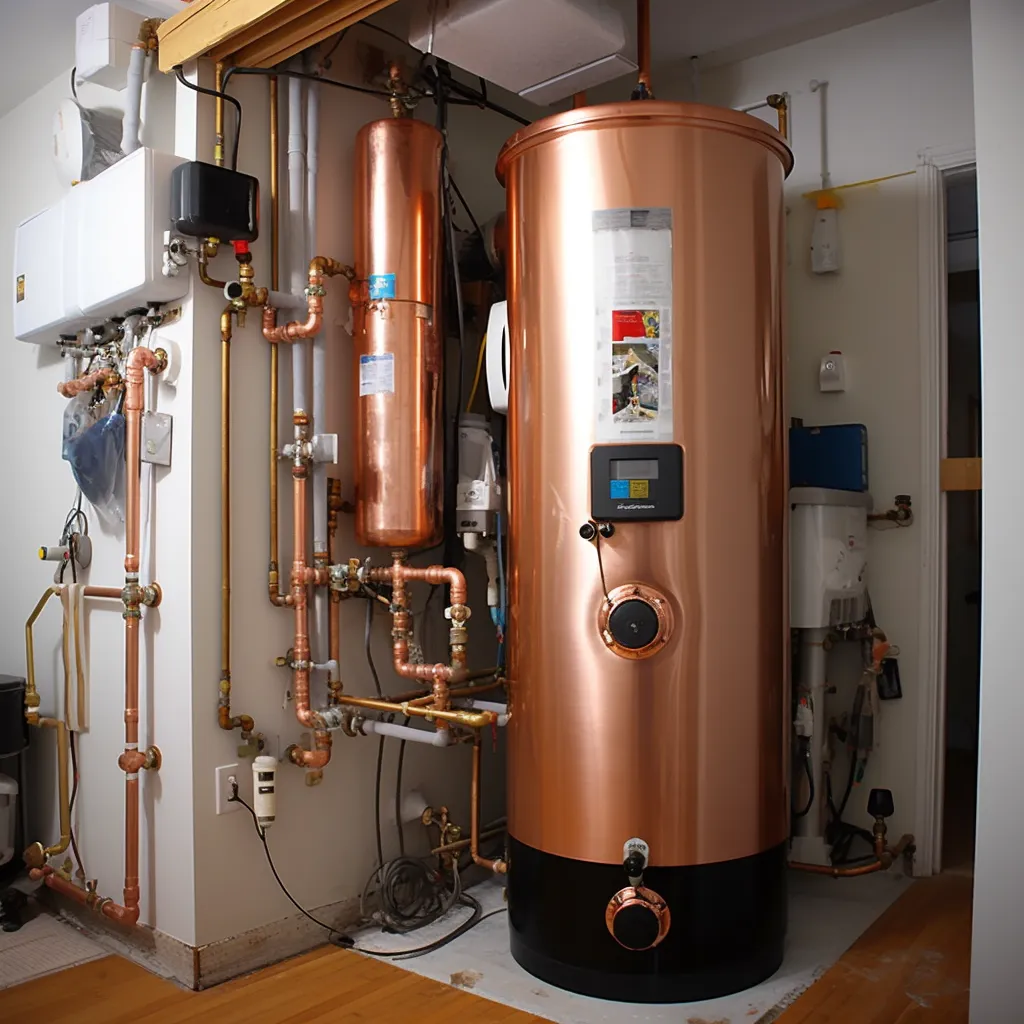
Myth #10: Your water heater wastes energy
Fact: While it is true that water heaters consume energy to heat water, modern water heaters are designed to be more energy-efficient than ever before. Advances in technology, insulation, and heating mechanisms have significantly improved the energy efficiency of water heaters, reducing energy waste and lowering utility bills.
Regular maintenance, proper sizing, and temperature settings can further optimize the efficiency of your water heater. Additionally, choosing an energy-efficient model, such as a tankless, heat pump, or condensing water heater, can significantly reduce energy consumption and contribute to a more eco-friendly home.

Myth #11: You don't need to regularly maintain
a water heater
Fact: Regular maintenance is essential for the proper functioning and longevity of a water heater. Neglecting maintenance can lead to sediment buildup, mineral deposits, and corrosion inside the tank, which can reduce the efficiency of the water heater and potentially cause damage.
Annual maintenance tasks such as flushing the tank, checking the anode rod, inspecting the pressure relief valve, and adjusting temperature settings can help keep your water heater in optimal condition. Regular maintenance not only improves energy efficiency but also prevents potential issues and costly repairs in the future.


Myth #12: You can use any type of water heater in the home
Fact: While there are various types of water heaters available, not all of them may be suitable for every home. The choice of a water heater depends on factors such as the household's hot water needs, available space, energy efficiency preferences, and existing plumbing infrastructure.
For instance, if you have a large family with high hot water demands, a tankless water heater or a larger tank-style water heater might be more appropriate. On the other hand, if space is limited, a compact tankless or point-of-use water heater may be a better fit.

Myth #13: Hard water damages your water heater
Fact: While hard water contains higher levels of minerals like calcium and magnesium, it does not directly damage water heaters. However, over time, the minerals in hard water can lead to mineral buildup and sediment accumulation in the water heater tank. This sediment can reduce the water heater's efficiency and potentially cause issues like reduced hot water output and increased energy consumption.
To prevent mineral buildup, it's essential to flush the water heater periodically to remove sediment. Additionally, using a water softener can help reduce the effects of hard water on your plumbing system and water-using appliances, including the water heater.
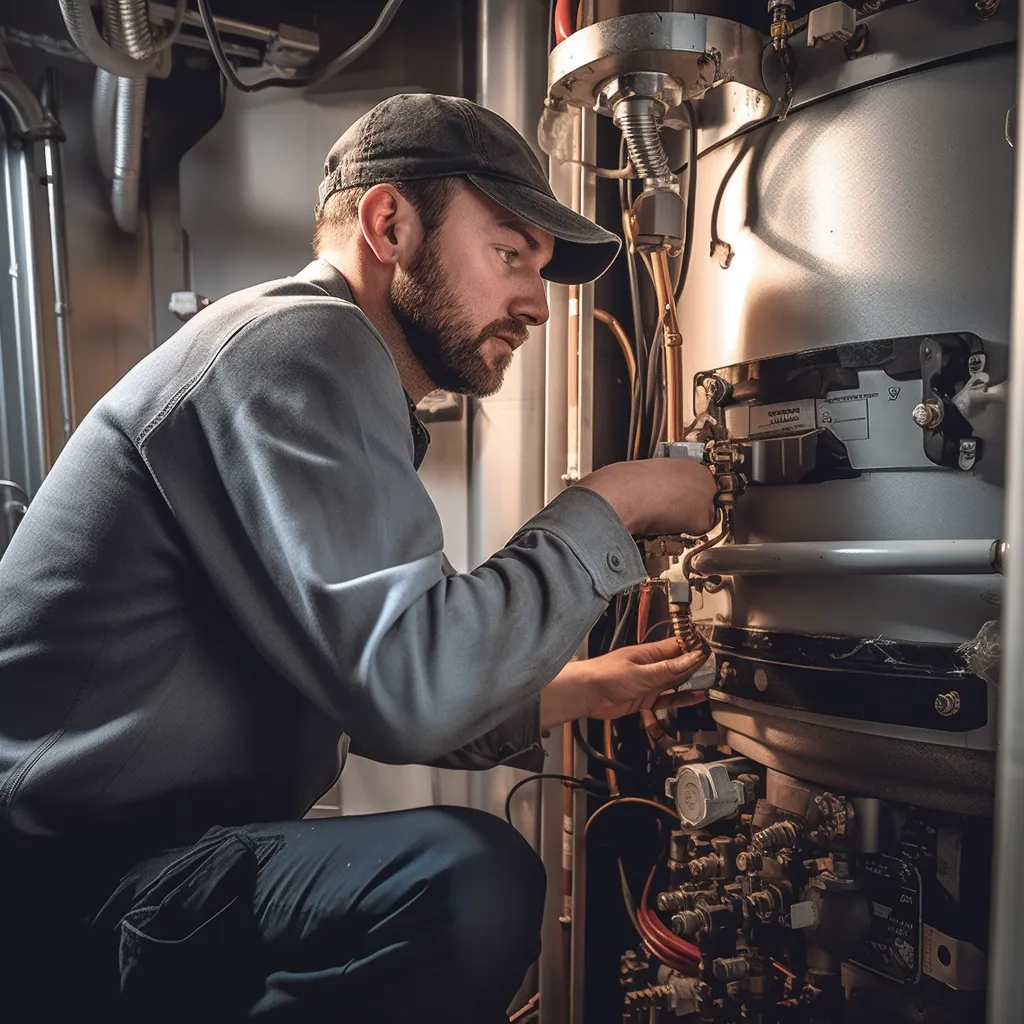

Myth #14: Tankless water heaters are more costly
Fact: While tankless water heaters typically have a higher upfront cost than traditional tank-style water heaters, they can offer long-term cost savings. Tankless water heaters are more energy-efficient because they only heat water on demand, eliminating standby heat loss that occurs with tank-style heaters.
Tankless water heaters can provide significant energy savings over time, which can help offset their higher initial cost. Additionally, tankless water heaters have a longer lifespan than tank-style heaters, further contributing to their cost-effectiveness.
Contact Us
GET IN FULL TOUCH
PHONE: (209) 370-0794
EMAIL:
orlando@waterheatermodesto.com
Westside Plumbing
Modesto, CA 95354
